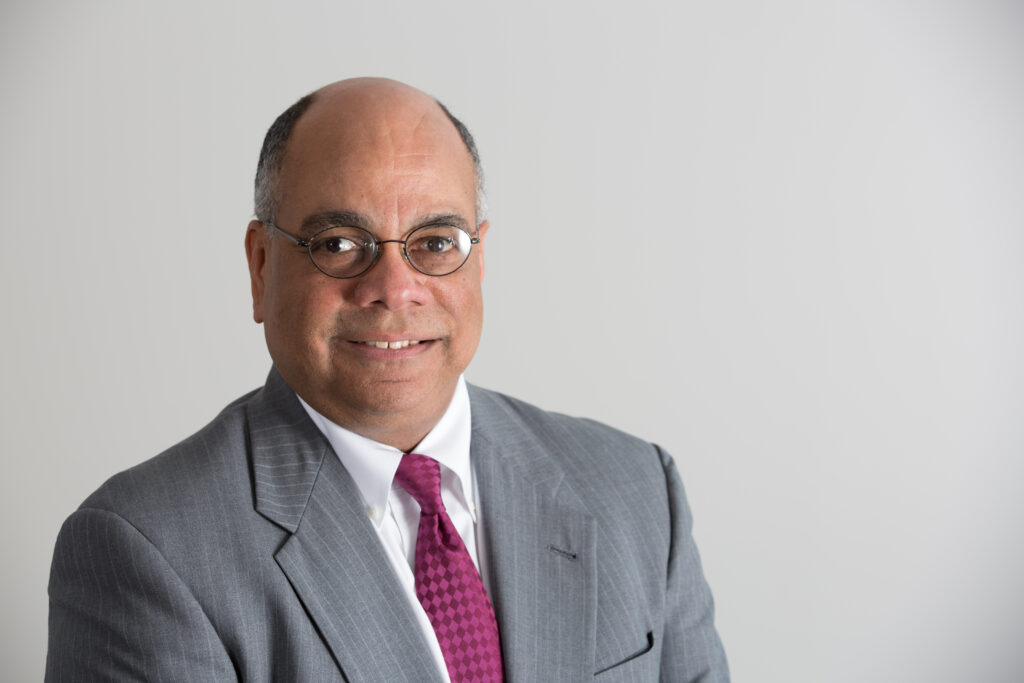
Professor Hunter R. Clark has been a pillar of the Drake Law community since 1993, teaching International Human Rights Law and sharing his expertise in International Law, International Trade, State and Local Government Law, and the U.S. Supreme Court. Over his three decades at Drake, Professor Clark has inspired generations of students and lawyers by encouraging them to think critically and engage meaningfully with the world around them. As he prepares to retire at the end of this semester, he reflects on his career and what he hopes that students will take away from his teaching.
What do you enjoy about working with students?
What I enjoy most about working with students is their receptiveness to new ideas and ways of thinking, to learning new things. Some are governed by pre-conceived notions more than others. But generally speaking, open-mindedness is a gift that comes with youth. I love the way their faces light up, or how the vibe in the classroom changes, when an explanation of something they’ve been curious about strikes them. You can feel it. It’s palpable.
An example would be when I discuss the New World Order and the international economic system put it place by the United States after World War II. I explain the idea that underlies it, which is to promote global economic development so that the people of the world will embrace prosperity as an alternative to fascism and war. In other words, the system is premised on a utopian vision of eternal peace. To the extent they had learned about it, few were taught to look at it that way. You can see and feel the visceral impact that new knowledge has on them.
What made Drake a place that you chose to stay at for so long?
Two reasons. One is because of the way Drake opened up to the world, evolved, and changed in positive ways. The other is because of the way Des Moines did, too.
When I came to Drake in 1993, Drake was a law school primarily committed to producing trial lawyers. And Drake was and is superb at that. But Drake’s vision of itself did not extend much beyond that. Drake was content to be what it had always been: Iowa-based and insulated from outside pressures to transform, globalize, diversify, and compete for national recognition. All of that has changed. For example, I was encouraged to introduce and develop an ABA-approved international law program, the International Law and Global Citizenship Certificate. And we now have ABA-accredited exchange programs in other countries—notably China and France. International courses are now a regular part of our curricular offerings.
In addition, Drake Law School now takes national rankings seriously. As a result, it has gained the national recognition it deserves. I’m proud to say that Drake was acknowledged recently by National Jurist’s Prelaw magazine as one of the best law schools in the country for International Human Rights Law.
Des Moines has evolved, as well. My wife Lisa and I chose Des Moines because we thought it would be a good place to raise a family. It is. But Des Moines has also developed in a way that is noteworthy for its cultural diversity and because there’s lots to do. And it’s still reasonably affordable. Des Moines was recognized not long ago as one of the most desirable places for young professionals.
I recently turned 70. The 33 years I’ve spent at Drake represent almost half my life. If I had to do it over again, I would make the same choice a hundred times over.
What do you hope students will take away from your teaching?
Critical thinking. That’s what I want students to take away from my teaching. According to a Google AI search, “critical thinking” is “the process of objectively analyzing facts, evidence, and arguments to form a sound judgment or make an informed decision. It involves questioning assumptions, evaluating information from different perspectives, and considering the credibility and purpose of sources to reach well-reasoned conclusions.”
For me, “questioning assumptions” is the key term in that definition. I want my students to challenge preconceptions and conventional wisdom to arrive at, to grasp and reveal, truth. “Veritas”, Latin for truth, is my alma mater Harvard’s motto, and also Drake’s.

